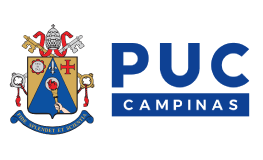Lines of Research:
Design, Innovation and Management in Architecture and Urbanism
This line of research studies the role of architectural and urbanistic interventions in the current configuration of the territory in its multiple scales; it analyzes the architectonic and urbanistic patrimonies, attesting the potential for urban rehabilitation and restoration of buildings; it investigates the spatiality of the contemporary public sphere, prioritizing the approach of building space systems, the configuration of urban form and the relationship between architecture and urban public spaces that presented changes of uses, users and the deterioration and obsolescence of equipment; it discusses the current paradigms that involve the processes of the built space, the collective and participatory actions of the populations involved and the economic, political, social and spatial impacts that emerge from them.
Theory, History and Criticism in Architecture and Urbanism
It addresses architecture and urbanism as a specific cognitive field that is shaped by the ideas, practices and interventions that were made in the history of western cities. It contemplates the epistemological transformations in modern culture, urbanism as a discipline of intervention and the “scientific” ordering of the urban constructed structure. It investigates the fundamental theories of architecture and urbanism in the context of the international debate aimed at building specialized knowledge without frontiers.
Objectives
The Masters in Architecture and Urbanism of PUC-Campinas Postgraduate Program in Architecture and Urbanism, considering its scientific vocation, the need for qualified professionals in the field of architecture and urbanism and for higher education professors, as well as the improvement of the quality of the teaching and social functions of the University, assumes the following objectives:
– Consolidate and expand the characteristics of the current PUC-Campinas program as a reference center in teaching, research and extension, working simultaneously as a training center for university professors and researchers and as a permanent source of innovation in architecture, urbanism and territory management.
– Consolidate and expand the characteristics of the program as a teaching and research center specialized in architecture and urbanism, in order to clearly focus the area of concentration and lines of research on the themes of theory, history, criticism, design, innovation and architecture and urbanism management.
– To qualify the program participants to be teachers and researchers, having as a guideline the production of relevant, current and innovative knowledge, as well as apt to reflect on educational and investigative practice.
– Develop the objectives expressed above by consolidating the Research Groups, certified by PUC-Campinas with the CNPq Research Groups Directory, which support the Program’s Research Lines.
Curricular structure
For the completion (*) of the Master in Architecture and Urbanism and to obtain the Master’s degree, a total of 32 credits are required, distributed as follows:
1) 02 compulsory subjects of 03 credits, making a total of 06 credits;
2) 04 elective disciplines of 03 credits, making a total of 12 credits;
3) 03 Modules of Advanced Research Seminar (ARS) – compulsory discipline of 02 credits, making a total of 06 credits;
4) Approval in Qualification Exam: until the end of the third semester of the Master’s course, the student must submit his dissertation project to a Qualification Exam.
5) Dissertation: 08 credits.
(*) In order to obtain the Master’s degree, in addition to fulfilling the credits listed above the student must fully comply with the provisions of the General Regulations of Stricto Sensu Graduate Programs. The compulsory subjects are specified below:
– Scientific Methodology in Architecture and Urbanism
– Reading and Production of Scientific Texts in Architecture and Urbanism
The minimum duration of the Master in Architecture and Urbanism is 12 months and the maximum is 24 months.
In this way, the progression of the course is distributed as follows:
| 1st semester | 2nd semester | 3rd semester | 4th semester |
| compulsory (1) | elective (2) | elective (4) | supervision |
| compulsory (2) | elective (3) | ARS III | – |
| elective | ARS II | supervision | – |
| ARS I | supervision | – | – |
| supervision | – | – | – |
Historic
The history of the creation of the Postgraduate Program in Architecture and Urbanism at PUC-Campinas began with the Faculty of Architecture and Urbanism when, at the beginning of the 90’s, with the implementation of the Teaching Career Regime, the professors were able to commit to research. The construction of projects and research groups became a reality and undergraduate students were now encouraged to participate in these surveys. This has been possible through:
– the promotion of PUC-Campinas, with resources from the scientific initiation programs of CEAP and CNPq – Programa PIBIC;
– the search for external resources with CNPq and FAPESP;
– the implementation of PET (Special Training Program) of CAPES, in 1992
The implementation of the Lato Sensu specialization courses by the Faculty of Architecture and Urbanism, in 1995, also constituted an important initiative for the construction of our postgraduate degree. Thus, in 1995, the specialization course “Modern and Contemporary Urbanism” was created; in 1996, “Territory Management” was founded; and, in 1998, “Architectural Heritage: theory and design” was also offered by the Program.
A solid foundation was created for the new step: the implementation of the Stricto Sensu graduate. At that moment, in 1997, the Stricto Sensu Postgraduate Program was implanted, offering the “Master in Urbanism”, when the Faculty of Architecture and Urbanism reached significant results with the researches made by professors and students involved in these postgraduates and research groups.
The Master’s in Urban Planning at PUC-Campinas was structured around two lines of research: Urban Management and History of Urban Planning.
The activities of the Postgraduate Program are directed by the Coordinator of the Graduate Program, under the supervision of the Stricto Sensu Post-Graduation Program Council. This council is made up of the Program Coordinator, two professors from the Program and a student that represents the course.
PUC-Campinas has been supporting the qualification of its faculty, enabling its professors for research. While obtaining their qualification in other higher education institutions, especially the doctoral degree, the faculty was implied to participate in research groups of these external institutions. After this process of training researchers, PUC-Campinas is fully qualified to develop its own research centers and laboratories, since it has an effective number of qualified researchers with excellent training.
The institutional reform of 2001, that gathered areas of knowledge in university centers, integrated the Post-Graduate Program in Urbanism at the Center of Exact, Environmental and Technology Sciences (Centro de Ciências Exatas, Ambientais e de Tecnologias – CEATEC), which made it possible to bring together researchers from other related areas, especially from the courses of Civil Engineering, Environmental Engineering, Geography, and Chemistry. This favored the consolidation of research groups that today allow the necessary conditions for a consolidation of this Stricto Sensu Graduate Program.
As of 2010, the restructuring of the pedagogical project with a view to the Doctorate began. In 2013 the Doctoral Course in Urbanism was implemented, after approval by CAPES, consolidating the Program. Thus, it was possible to develop more robust research, with the longer permanence of doctoral students in the projects, with greater production and intensification of the academic life of the Program. It also started to receive Brazilian and foreign researchers for Post-Doctorate.
With the consolidation of the Postgraduate Program in Urbanism, forming our first doctors, the Program turned to formulate a pedagogical restructuring aiming to expand it to Architecture and Urbanism, in order to correspond to the Graduation organization itself, aiming to offer academic training suitable for graduates with an interest in research and teaching in Architecture, in addition to Urbanism.
Thus, after two internal colloquia, the proposal for the Post-Graduation Program Stricto Sensu in Architecture and Urbanism – POSURB-ARQ, was approved in 2017 by CAPES and implemented in 2018. As a result, the area of concentration of the Program changed for Architecture, Urbanism and Territory.
In 2017, together with the University Center of Várzea Grande – UNIVAG, we prepared a proposal for a new Master’s course in association, in order to create an AU Program in Mato Grosso. The proposal was approved by CAPES and implemented in 2019.








